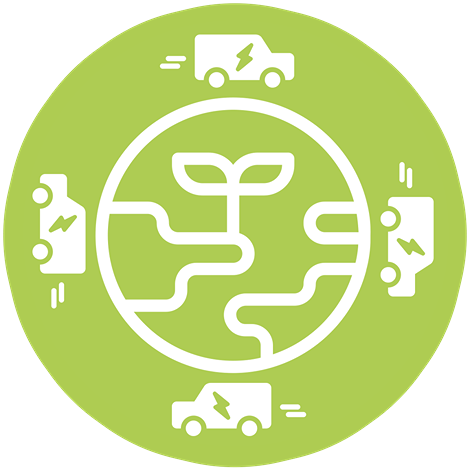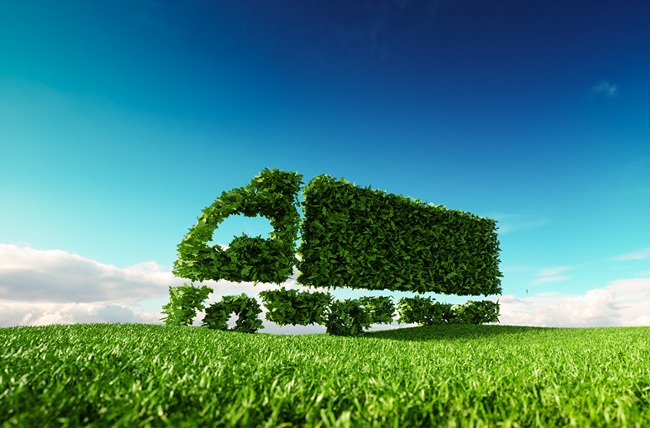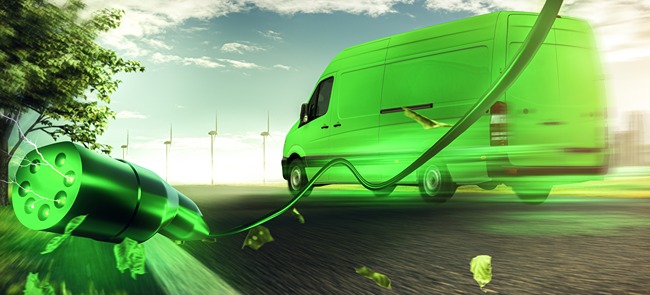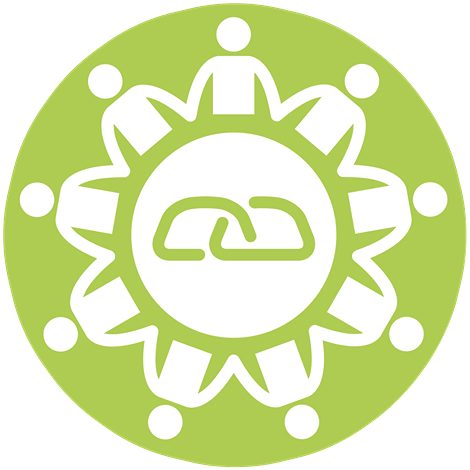REDUCING OUR EMISSIONS ALONG THE VALUE CHAIN

Scope 3 emissions explained
Greenhouse gas emissions are categorised into three groups or Scopes by the most widely-used international accounting tool, the Greenhouse Gas (GHG) Protocol. As explained in the previous newsletter, Scope 1 covers ‘direct’ emissions, those that a company causes - such as the manufacturing of our products. Scope 2 covers ‘indirect’ emissions, from electricity consumption. By 2030, these emissions for Sekurit Service will be reduced by 100% (vs 2019).
Scope 3 emissions are all other ‘indirect’ emissions from the whole value chain. They cover the emissions related to sourcing of raw material, use and end of life of the products, upstream and downstream logistics etc.
For most companies, including Sekurit Service, these emissions are the hardest to tackle. Mainly because they’re affected by decisions made outside our company. As a leader in our market, we need to track and influence activities across our whole value chain, from our suppliers to our end users. Our commitment is clear. To engage the whole value chain by committing on our scope 3.

Changing climate change together
As part of the global Saint-Gobain family, we at Sekurit Service are guided by a shared commitment to ‘make the world a better home’. And in our view, this requires a holistic approach. We think sustainability is about much more than reducing our own carbon footprint. From process optimisation in our plants to a vision of circular economy where waste doesn’t exist and the sharing of best practices with our employees and stakeholders; we’re driven to change the mind-set and actions of our whole ecosystem.
No matter how hard we work to cut our CO2-emissions, recycle our products and reduce our waste, we know we can’t do this alone. Fighting climate change is a shared responsibility and we all need to step up; ourselves, our employees, suppliers, partners, customers and everyone in-between. We realise decarbonising our value chain isn’t done overnight, but since stopping climate change is a fight against the clock, there’s no more time to waste. Together, we have the power to make a difference and create a better, cleaner tomorrow.

Taking action along the value chain
At Sekurit Service we’re already making important commitments to our sustainability roadmap. By 2030, our Scope 3 emissions will be reduced by at least 30% (vs 2019). As a pro-active industry leader in the world of automotive glazing, we know that we can initiate sustainable change throughout the business value chain. From the transport of materials to our central warehouse in Bastogne, to the crates we use and the last mile delivery to our customers: we’re committed to lowering our ecological footprint every step of the way.
Our actions on upstream transport: from our Suppliers to our Plants
We optimise logistic flow as most of our raw material such as flat glass is coming from Europe and we are usually using the same trucks as those to deliver to our major warehouse in Bastogne.
Most of these trucks are powered with HVO, a biofuel made from vegetable oils, or from reprocessed waste.
The use of HVO reduces CO2 emissions by at least 50% and up to 90% compared to standard fuel over the entire product life cycle.

Our actions on downstream transport: from our Central warehouse to our Distribution Centres to our end Customers
We are carrying out various initiatives to reduce the carbon impact of our downstream logistics, by optimising flows, by setting up regular monitoring of our carriers' mileage driven and fuel consumption, and by developing reverse logistics to send packaging-related elements back to our central warehouse in Bastogne. In addition, together with our carrier, we’re exploring new solutions to reduce our transportation carbon footprint. One of our key ambitions is to increase our multi-modal share. We conducted a multi-modal study in 2020, allowing us to consider new routes by boat or train.
Finally, for last mile delivery, we have opted for lighter vehicles, adapted the quantity delivered notably by reducing packaging used to maximise the space available in our mini-vans. Moreover, in some countries, we are gradually switching to electric fleets, as in Finland.
More sustainable products, with the lowest carbon footprint
All these actions are concrete proof of our commitment towards carbon neutrality and will reduce the carbon footprint of our products. Thus, our objective is to provide more sustainable products for our customers with the lowest carbon footprint. To do so, Life Cycle Assessment (LCA) tool is used as it allows us to identify and quantify environmental impacts in order to reduce them (see Newsletter 1 for more information about LCA).
We are fully aware of the Life Cycle Assessment of a windshield for the aftermarket:
→ Did you know that 18% of the footprint for the entire life cycle of a Sekurit Service windscreen comes from logistics and packaging?
→ Being Made in Europe – local and close by is a huge driver to reduce the carbon footprint as it accounts for nearly one fifth of the total emissions of the product.

Our future commitments and our daily actions
Our objectives are not fixed and are bound to become more and more demanding, both on us and on the supply chain. Decarbonising our supply chain is a long journey because changing suppliers, or even changing habits, is not an option in the short term. In a business context, resilience and sustainability are interdependent. But it remains that our partners can be a strength in our sustainability journey.
Our motto is “Think long term, act now!”
Stay tuned on our Made in Europe story, there’s more to follow next month!
